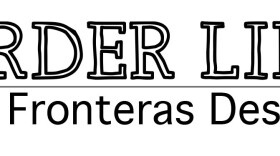She's a high-level skater for one of Top 20 roller derby teams in the world -- the Tent City Terrors of Arizona Roller Derby. When she competes on the track, she's wearing three things: a Tent City-inspired uniform, a Mexican flag belt buckle and her name.
Wetback Attack.
The modern incarnation of roller derby is a tough, edgy sport where irreverence is the norm. But it's still possible to evoke a reaction among skaters, fans and those just passing by.
The first time we met, she told me to call her Wetback. I'll admit it didn't just roll off my tongue.
"Fans receive the name with mixed hearts," Wetback said. "What I find is the people who are most offended by it tend to be not Hispanic. I have yet to come across a Hispanic person who hears Wetback Attack and says, 'I can't believe you're calling yourself that.'"
In fact, Wetback won the Arizona Roller Derby Fan Favorite award for best derby name this season. She transferred to AZRD in November 2011 and has made an immediate impact as a top player.
"Even Native Americans that I know are like, 'that's such a kick ass name,'" she said.
The term 'wetback' is known as a racial slur. It refers to Mexicans who entered Texas by crossing the Rio Grande. But the skater believes strongly that by using the name in roller derby, she is reclaiming the term.
"The main reason that I chose the name is because I didn't want the word to be associated with something negative," Wetback said. "And I make a very consistent effort to be a good sportswoman on the track, to have a very positive attitude, to push myself when I come here, that way when people say 'Wetback' it doesn't mean anything bad anymore."
Her mother was a migrant farm worker as a child in Mexico, and her father was born in the United States but still had family ties to Mexico. Wetback was raised in Phoenix but encountered significant culture shock when she moved to Portland for college. It was there that 'Wetback Attack' was born in 2007.
But not everyone is open to the name. Some skaters try to refer to her as W.B. or Attack. And I've noticed that announcers of the live online game broadcasts sometimes opt out of using the name.
She said that's frustrating.
"When people aren't saying Wetback, it kinda defeats the purpose of choosing the name. Yes, I understand that it makes some people uncomfortable, but it only makes people uncomfortable if you associate something negative with it," she said.
"I have had people call me Wetback, out loud, in public places, and I'm glad to be greeted by it."
I've seen firsthand how people outside of roller derby don't understand. A group of us were watching the live streaming broadcast of a Tent City Terror game in a local sports bar and cheering for Wetback. Other restaurant patrons seemed mystified and offended by what must have seemed like outright racism.
And Wetback said she received a less-than-warm welcome while competing in Tucson, which surprised her given its proximity to the border. Fans in the stands booed her with every lap.
As roller derby grows around the world, she predicts more derby names that attempt to reclaim language.
"There seems to be more racial names appearing as derby as the sport grows," Wetback said. "And I think it's awesome and even necessary for skaters to consider taking on these names specifically because derby currently is a very white sport. It's expensive.
"The more that people join and assert that they, too, are part of this sport be they black, white, queer, bi, whatever the case may be, they should make their presence known."







